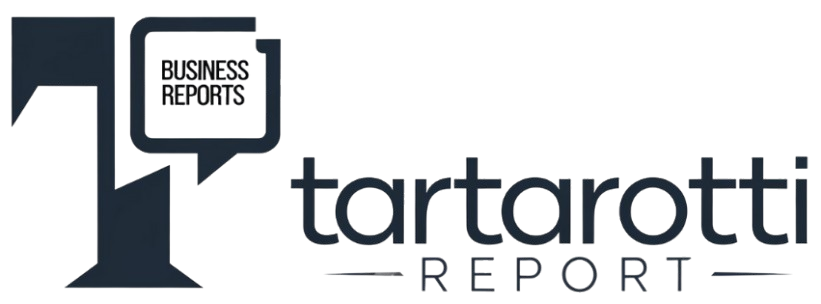Introduction
Healthy leadership is fundamental to the sustainable success of organizations. Executives play a crucial role in promoting practices that not only boost company performance, but also ensure employee well-being and corporate responsibility. In this context, ESG (Environmental, Social, and Governance) principles have emerged as guides for creating healthy work environments focused on responsible governance, positive social impact and environmental sustainability.
For leaders, achieving high performance doesn’t just mean hitting business targets; it also involves maintaining a balance between physical and mental health and self-care. This includes practices such as a balanced diet, physical exercise, adequate hydration and stress management. This article explores how executives can adopt healthy habits to lead effectively, boost organizational well-being and meet ESG objectives at the same time.
Part 1: Straight to the Point 🎯 – Basic Strategies and Practical Actions
Part 1, “Straight to the Point”, offers practical instructions and suggestions for immediate action.

Here are five practical tips to help executives maintain their health and achieve high performance, integrating these practices with ESG principles.
- Establish a Personalized Training Routine
- How to do it: Executives need an exercise program adapted to their schedule and physical needs. This can include short, high-intensity functional workouts combined with stretching and resistance exercises. One suggestion is to start the day with a 30-minute session, alternating between cardiovascular activities and weight training. For those who have more time, relaxation activities such as yoga and Pilates can be inserted at the end of the day, helping to balance the body and mind.
- Why it’s important: Regular exercise improves blood circulation, increases energy levels and promotes the release of endorphins, which help reduce stress. A study published by the American Psychological Association (APA) showed that executives who exercise regularly are more resilient to stress and make more rational decisions under pressure. In addition, health programs that include sustainable physical activity are aligned with ESG objectives, encouraging an active and responsible lifestyle.
- Maintain a Functional and Balanced Diet
- How to do it: Executives’ diets should be designed to support high mental and physical performance. A functional diet includes the consumption of foods rich in essential nutrients for the brain, such as oily fish, nuts, seeds and dark green vegetables, which are sources of omega-3 fatty acids and antioxidants. Plan your meals to include whole grains, lean proteins and healthy fats, avoiding processed and sugar-rich foods as much as possible. If possible, adopt organic and sustainably sourced foods, aligning your diet with ESG principles.
- Why it’s important: Proper nutrition has a direct impact on mental clarity and physical energy. Research from Harvard Medical School shows that a diet rich in specific nutrients improves cognitive function, memory and the ability to concentrate. In addition, choosing sustainable foods has a lower environmental impact, aligning the health of leaders with the environmental responsibility of companies.
- Adequate Hydration to Maintain High Performance
- How to do it: Staying hydrated throughout the day is essential for executives who need focus and mental clarity. The recommendation is to consume at least 2 liters of water a day, which may vary according to body weight and level of physical activity. To facilitate adherence, keep a bottle of water close by and set reminders on your cell phone to drink water at regular intervals. Executives who travel frequently should pay even more attention to hydration, especially on long flights.
- Why it’s important: Adequate hydration is crucial for proper brain and physical functioning. A study published in the Journal of Nutrition revealed that mild dehydration can cause deficits in attention, memory and motor skills. For executives who need to make quick decisions and manage multiple responsibilities, ensuring an optimal level of hydration can be the key to maintaining performance at the highest level.
- Implement stress management techniques
- How to do it: Stress is a constant in any leader’s life, but it can be managed through mindfulness practices, meditation and deep breathing. A simple technique that can be adopted in the workplace is “4-7-8 breathing”: inhale for 4 seconds, hold your breath for 7 seconds and exhale slowly for 8 seconds. Executives can take 5 minutes between meetings or at the end of the working day to practice this technique and reduce stress levels.
- Why it’s important: Managing stress is essential to avoid physical and mental exhaustion. According to the Mayo Clinic, the regular practice of mindfulness reduces blood pressure, improves mood and increases the ability to focus. Reducing stress also has a positive impact on productivity and the work environment, which is one of the pillars of ESG, promoting a healthier and more sustainable workspace.
- Promote a Culture of Well-Being in the Organization
- How to do it: Healthy leaders inspire their teams to adopt better lifestyle habits. Executives should be the first to promote and participate in corporate health programs, such as nutrition workshops, physical activity challenges and talks on mental well-being. In addition, they should encourage flexible working policies that allow for better time management between personal and professional life. Another idea is to create spaces in the workplace for relaxation, such as meditation rooms or rest areas.
- Why it’s important: When leaders demonstrate a commitment to well-being, the organizational culture changes, becoming more inclusive and focused on the health of employees. This not only improves team morale, but also reduces turnover and absenteeism, positively impacting the company’s bottom line. A Gallup study showed that companies with robust wellness cultures have a 21% increase in productivity and a 41% reduction in cases of burnout. This approach also reinforces ESG values by promoting health and well-being as pillars of corporate governance.
Part 2: Explaining the Concept Cientificamente👨🏻🔬 – Deepening your knowledge
Part 2, “Explaining the Concept Scientifically”, provides a scientifically-based in-depth look at the “whys” and explains in more detail the suggestions set out in Part 1

Healthy Leadership and the Impact on ESG
Healthy leadership is not just an aspirational ideal; it is a concept based on scientific data that demonstrates how self-care practices, a balanced diet, physical activity and stress management can increase productivity and improve the working environment. In addition, these practices are aligned with ESG (Environmental, Social, and Governance) principles, as they promote employee well-being, encourage sustainability and strengthen corporate governance.
1. The Role of Physical Activity in High Performance and Executive Health
Regular physical activity has a significant impact on the mental and physical health of leaders. Studies show that regular physical exercise improves cardiovascular health, regulates cortisol levels (the stress hormone) and stimulates the production of endorphins, neurotransmitters that promote a sense of well-being.
A Harvard Medical School study revealed that executives who do at least 150 minutes of moderate exercise a week experience a substantial reduction in stress levels and an improvement in sleep quality, both critical factors for decision-making and effective leadership. In addition, regular physical activity is associated with improved cognitive function and increased creativity, essential for the complex challenges faced by executives in their daily routines.
The connection with ESG principles lies in the promotion of a corporate culture that encourages healthy habits. Companies that implement health programs and encourage their leaders to adopt regular physical activity practices demonstrate a commitment to social sustainability and the well-being of their employees, strengthening their social responsibility (“S” dimension of ESG).
2. The Importance of Functional Nutrition for Cognitive Performance
Proper nutrition also plays a crucial role in the high performance of leaders. Diets rich in nutrients such as omega-3 fatty acids, antioxidants and B vitamins have been associated with better brain function, greater mental clarity and reduced risk of chronic diseases.
A study published in the American Journal of Clinical Nutrition revealed that executives who follow a diet rich in oily fish, nuts, seeds and green leafy vegetables experience an improvement in short-term memory and a greater ability to solve problems under pressure. In addition, the inclusion of foods that promote intestinal health – such as fiber, probiotics and fermented foods – is also associated with a better mood and greater resilience to stress.
When leaders adopt a functional diet, they not only increase their own leadership capacity, but also inspire their employees to do the same. Companies that promote healthy eating in their policies, such as offering nutritious meal options in the workplace, strengthen organizational well-being and align with the environmental (E) dimension of ESG by promoting sustainable diets with a low environmental impact.
3. Adequate Hydration and Brain Function
The importance of hydration for executive health should not be underestimated. The human brain is made up of around 75% water, and even mild dehydration can negatively affect cognitive function. Adequate hydration is key to maintaining proper blood flow, which carries oxygen and essential nutrients to the brain.
A study published in the Journal of Nutrition showed that dehydration of just 2% of body weight can significantly impair the ability to concentrate, short-term memory and motor skills. For executives who need to make quick and accurate decisions, keeping hydration at optimum levels is one of the simplest and most effective practices for improving mental performance.
Promoting adequate hydration within the corporate environment – such as encouraging water consumption and providing hydration stations in offices – not only improves the individual health of employees, but also contributes to a more productive and healthy working environment. These practices can also be aligned with ESG principles, promoting a reduction in the consumption of sugary drinks and disposable plastic packaging, reducing environmental impact.
4. Stress Management and Mental Resilience
Stress is one of the biggest challenges faced by executives. Failure to manage it can lead to burnout, reduced productivity and increased errors in decision-making. However, effective stress management, through practices such as mindfulness, meditation and controlled breathing, can reduce its negative impacts.
According to a study by the American Institute of Stress, executives who adopt regular mindfulness practices experience a significant reduction in cortisol levels and an improvement in mental resilience. Meditation, in particular, has been associated with increased ability to focus and improved emotional control, which is crucial for leaders facing high-pressure corporate environments.
In addition, by promoting the mental well-being of their leaders, companies reinforce their commitment to the mental health of employees at all levels. Corporate initiatives that focus on stress management – such as the inclusion of mindfulness programs and workshops on mental resilience – strengthen the “S” dimension of ESG, ensuring that mental well-being is an integral part of the organizational culture.
5. Healthy Leadership and Corporate Governance
Healthy executives are better prepared to make ethical, effective and sustainable decisions. When leaders incorporate self-care and wellness practices into their routines, they become role models for their teams, creating an organizational culture that values work-life balance.
Corporate governance, the third dimension of ESG, benefits directly from healthy leaders. Strategic decisions made by executives who take care of their health are more thoughtful and based on data, which strengthens the transparency and integrity of the organization. A McKinsey & Company study revealed that companies whose leaders practice healthy habits have better financial results and higher employee satisfaction.
In addition, promoting a culture of healthy leadership and well-being strengthens the company’s reputation among its stakeholders, demonstrating a genuine commitment to the organization’s sustainable future.
Conclusion
Healthy leadership is an essential pillar for the sustainable success of any company. Executives who adopt wellness practices, such as regular physical training, functional nutrition, adequate hydration and effective stress management, not only improve their own performance, but also inspire their teams to follow suit. When these practices are integrated with ESG principles, the positive impact extends beyond individual health, strengthening corporate governance, social responsibility and environmental sustainability.
Companies that invest in the well-being of their leaders are positioned to achieve high performance and, at the same time, meet the growing demands for responsibility and sustainability on the global corporate stage.

Kelton Tartarotti, a specialist in Health, Longevity and Lifestyle Reprogramming, brings an innovative approach to corporate and personal well-being in the Tartarotti Report. With a comprehensive background in Physical Education, including a BA, BSc and post-graduate studies in the Physiological Basis of Personalized Training and Sports Nutrition, Kelton has a solid foundation in sports and health sciences.
He is registered with the Regional Council of Physical Education (CREF-ES) under number: 005334-G/ES
His experience includes:
International certification as a Personal Trainer by the World Fitness Association (Florida/USA)
Coaching training by ABRACOACH
Specialization in Integrative Functional Health
15 years as a physical trainer for elite MMA athletes in world events
Working as a Physical Trainer at the Espírito Santo Olympic Center (COES)
In the Tartarotti Report, Kelton offers valuable insights into:
Scientifically-based executive health protocols
Stress management and resilience techniques for leaders
Sleep optimization strategies for cognitive performance
Functional nutrition adapted to corporate life
Efficient exercise programs for busy schedules







